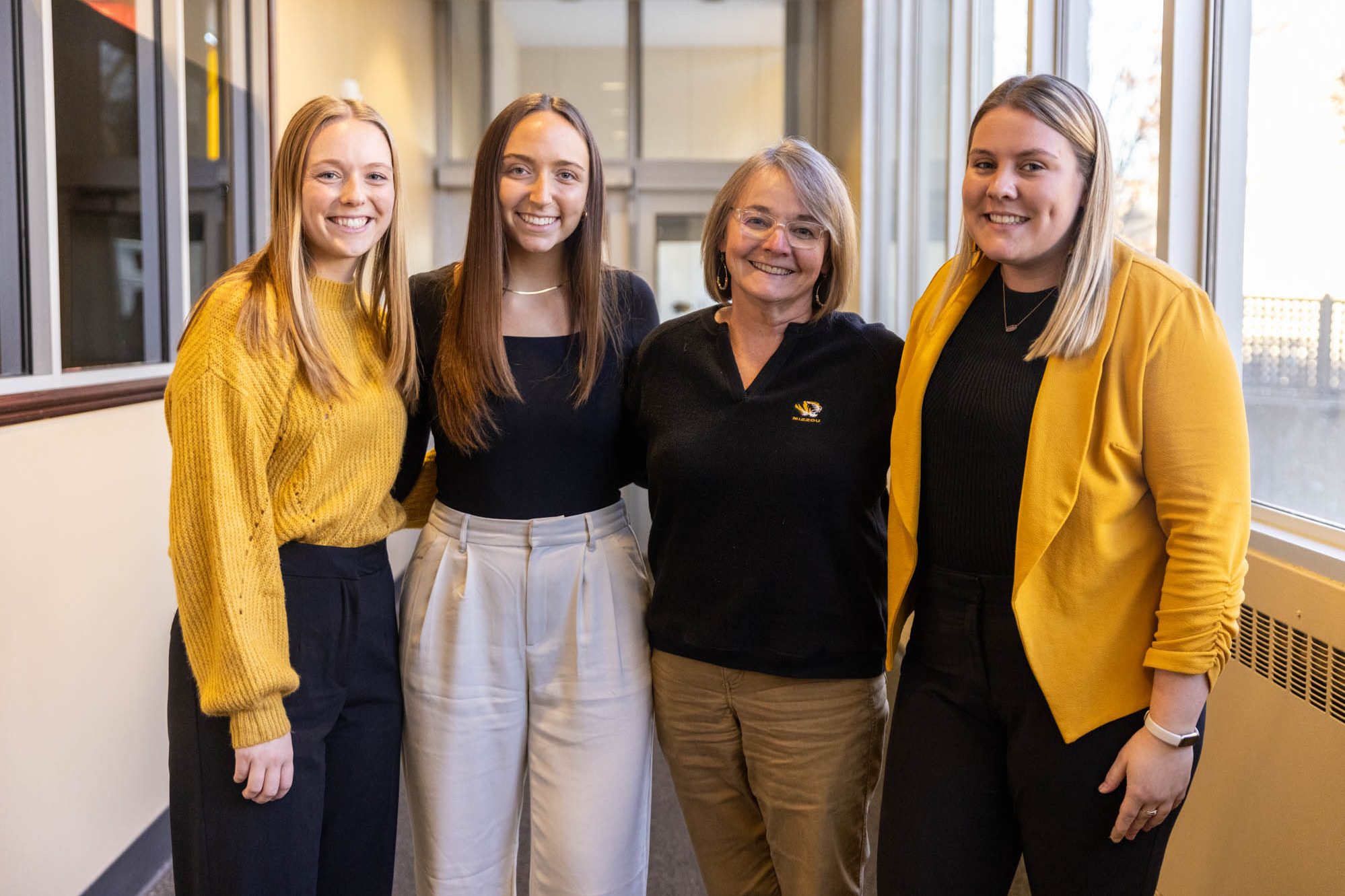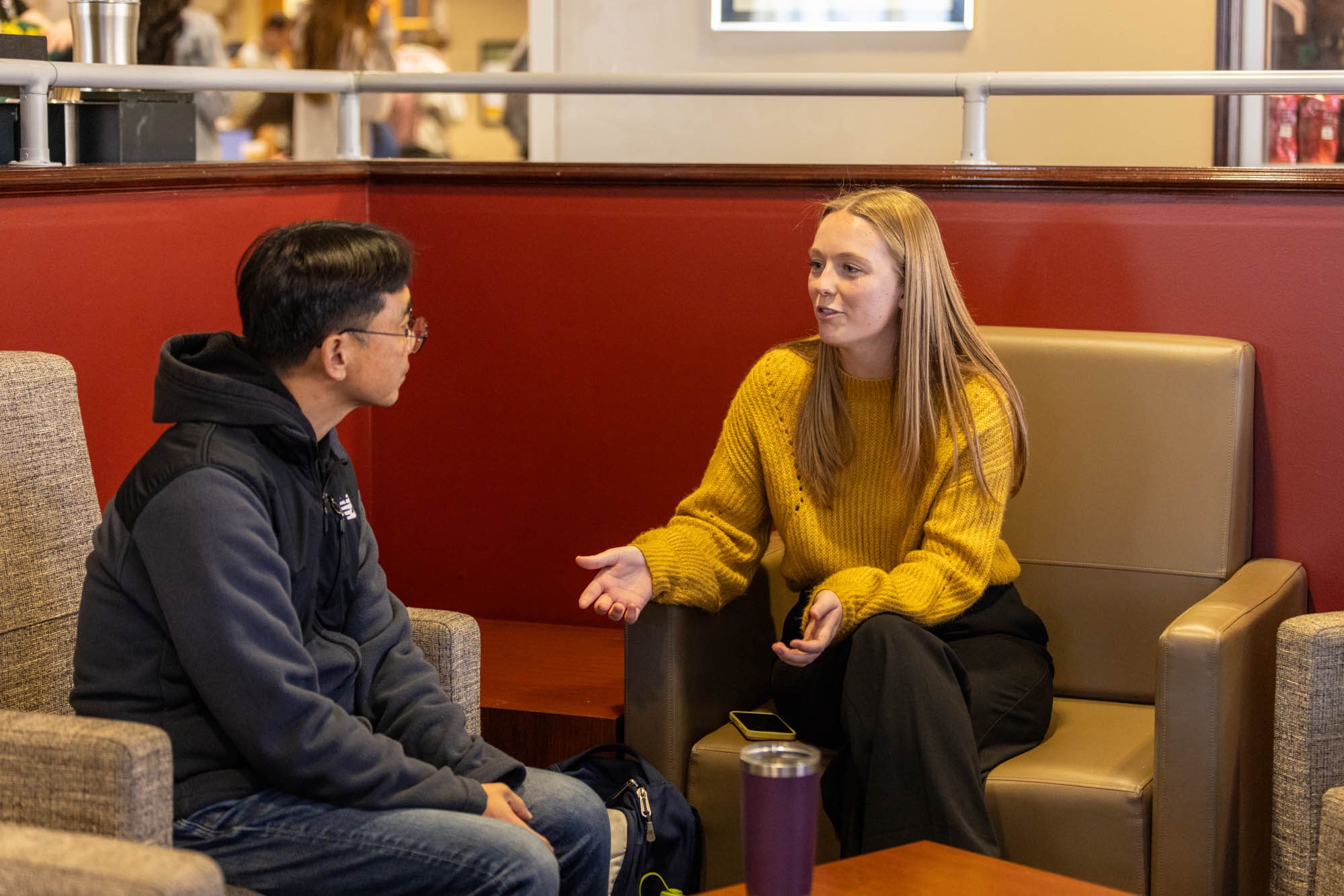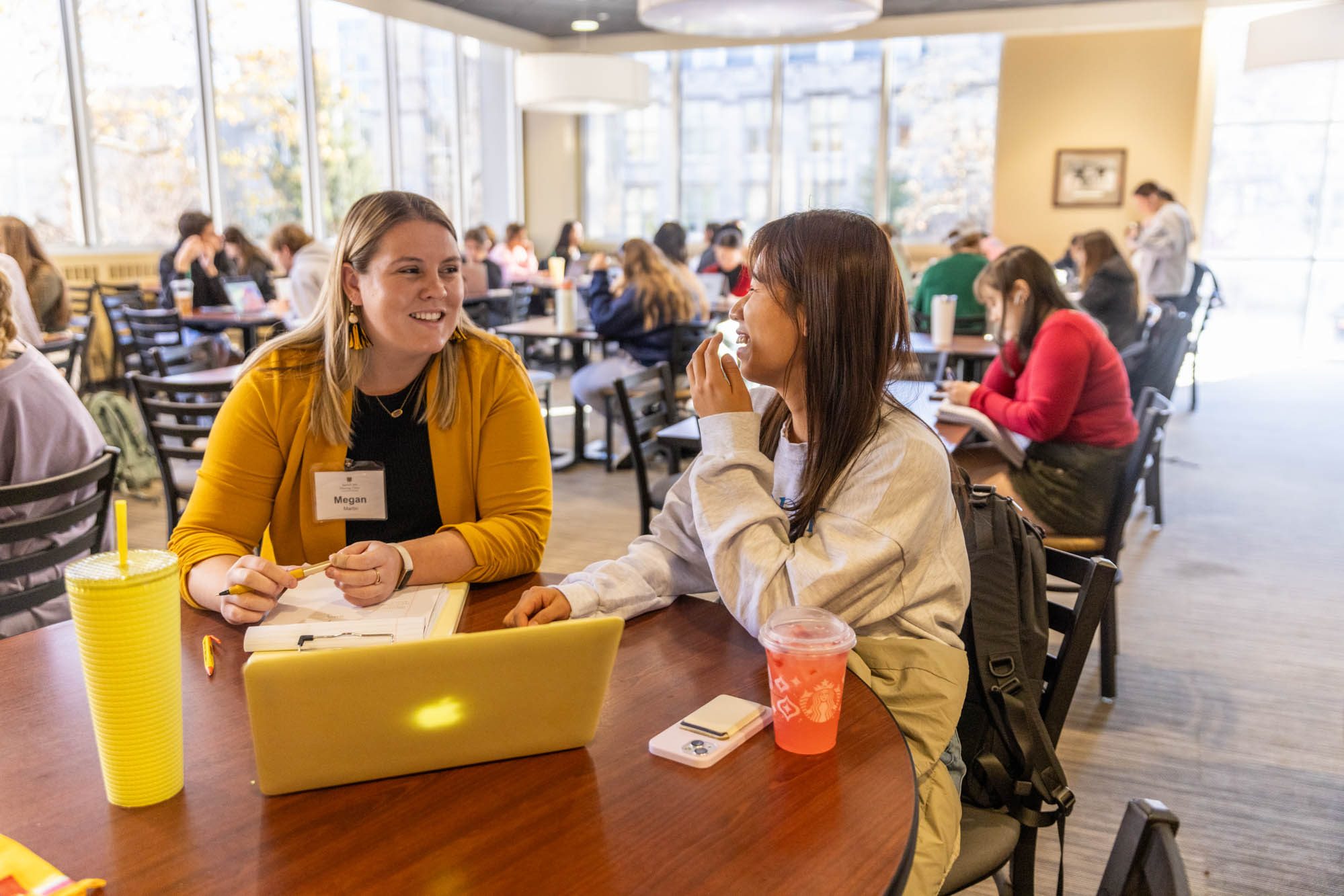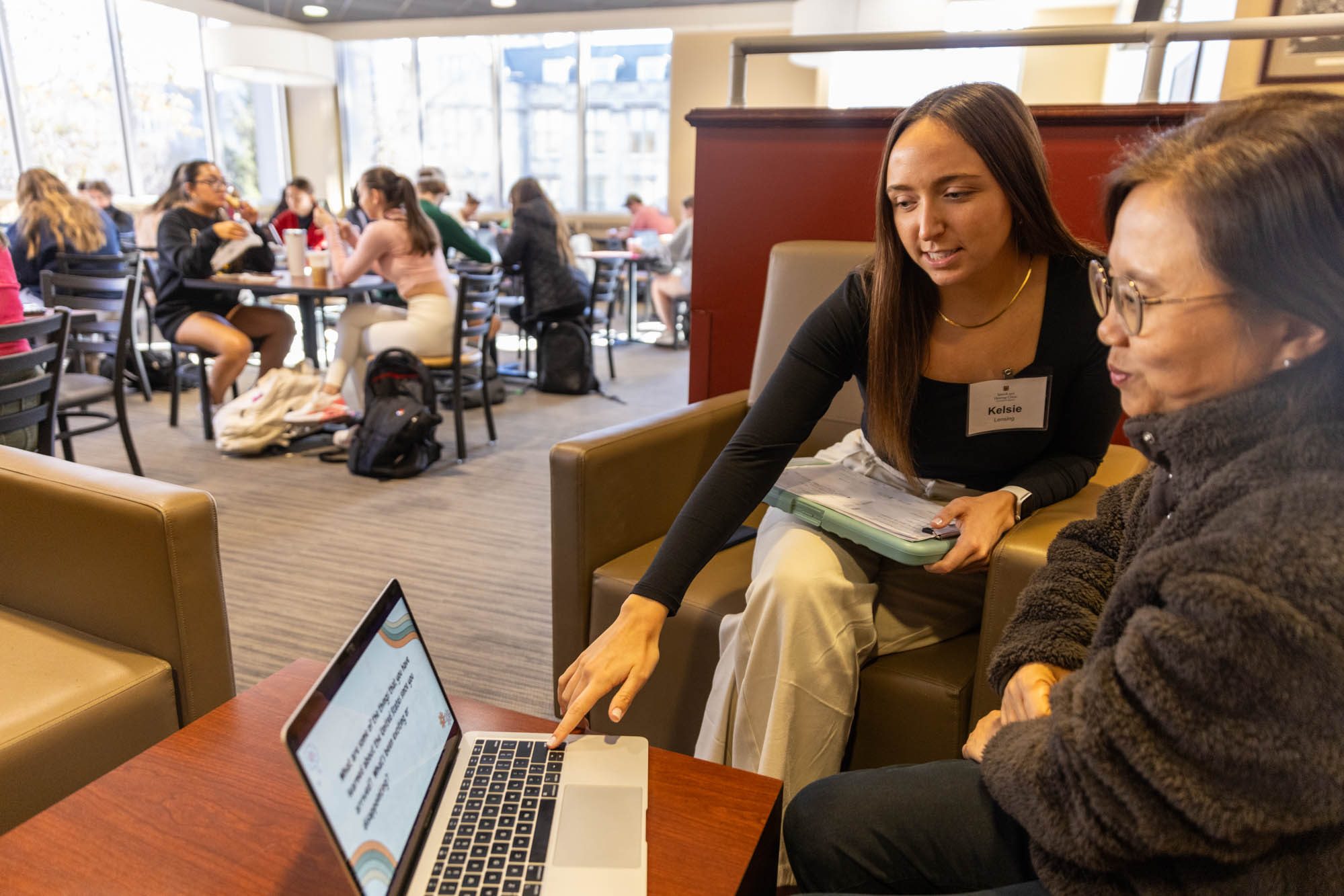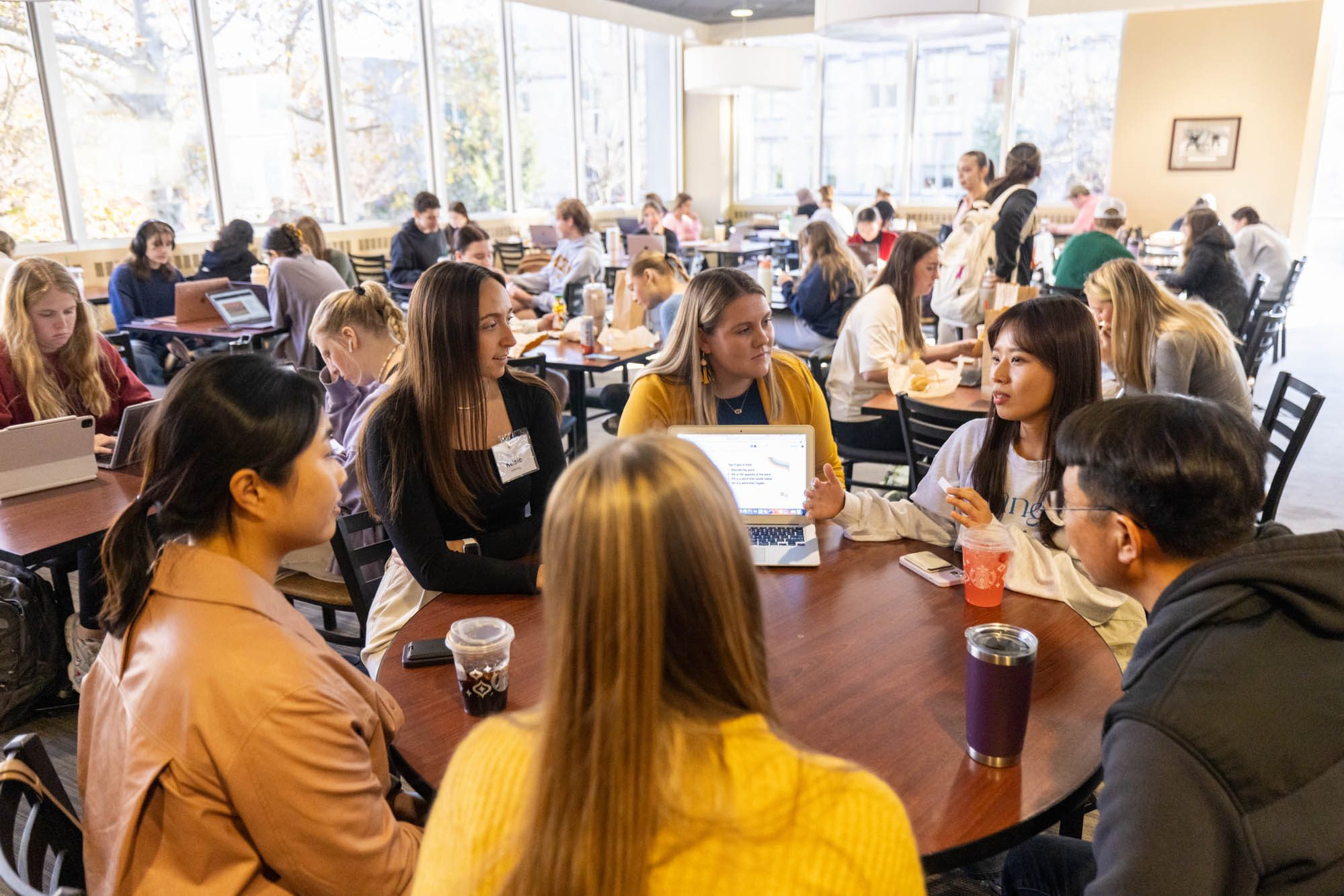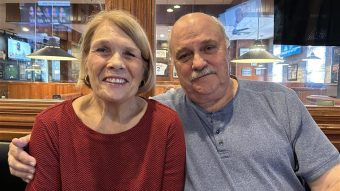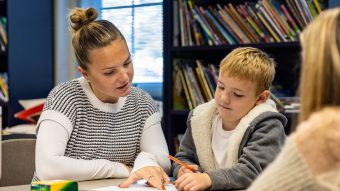Dec. 6, 2023
Contact: Deidra Ashley, ashleyde@missouri.edu
Photos by Abbie Lankitus
For many people, the daily ritual of drinking coffee is the key to having a successful and productive day. And for some, a ruined coffee order can set a negative tone for the hours that follow.
While ordering coffee might seem like a simple task, Megan Martin knows how daunting it can be when you’re attempting to do it outside of your native language. A graduate clinician at the University of Missouri’s Accent Expansion Program, Martin works to assist people who want to improve their American English accents.
“One of the participants told me that every time she went to Starbucks, the baristas couldn’t understand her when she ordered,” Martin said. “She said, ‘All I want is to get a vanilla latte.’ I know it was such a frustrating thing for her to experience every day.”
To ease these types of challenges for international students, faculty and community members, the Department of Speech, Language and Hearing Sciences within the College of Health Sciences created the Accent Expansion Program. For the past 17 years, it’s led the way in helping people with speech differences access learning tools focused on intonation, pronunciation, stress and pragmatics in American English.
“We want participants to choose to speak with someone in person rather than send an email because they feel nervous,” said Dana Fritz, director of the Accent Expansion Program. “Nobody is crazy about public speaking, but it's the confidence to interact and know they'll have a better chance of being understood that propels them into more communication practice.”
Dissecting the difference
In addition to helping members of our community improve their American English accents, the program provides undergraduate and graduate students the opportunity to receive clinical experience.
“I enjoy making my participants feel comfortable and becoming like a friend to them,” undergraduate clinician Lauren Widman said. “The most rewarding part is just seeing them smile and have fun while they’re learning; it feels great knowing that I'm helping them achieve a goal that they've been working on.”
Improving accents is only one aspect of boosting a participant’s confidence; becoming acclimated to social conventions and understanding conversational context are just as important. That’s why, along with working on speech differences, participants also receive valuable learning through cultural exchanges.
Yeonseok Chae, a participant from South Korea, was referred to the Accent Expansion Program through Mizzou’s Asian Affairs Center. He began attending sessions in the spring of this year and said his experience has been marked not only by improved pronunciation, but also increased cultural knowledge.
“When we study English in Korea, we are just learning the language,” Yeonseok said. “But in America, after taking a class, I know all the new expressions here, especially in the younger generations. It is very helpful for understanding American culture.”
Receiving clinical experience is the overarching goal for students, but the additional exposure they receive to new traditions and languages makes the program even more fulfilling for aspiring professionals interested in language and dialect.
“I think one of the best parts is as much as I'm teaching my participants, they're teaching me,” graduate clinician Kelsie Lensing said. “Sometimes I’ll ask questions like, ‘What's your favorite food?’ And they tell me in their native language. Then I’m like, ‘Let me try to say it. Am I saying it right?’ I just learn so much from them, even though they're here to learn from me.”
Learning through listening
A clinician’s ability to listen can be the greatest factor in creating an environment conducive to learning.
After Martin listened to her participant express frustration with ordering coffee, she dedicated an entire session to addressing their order pronunciation. The participant returned the following week, vanilla latte in hand.
“It’s just the little stuff like that,” Martin said. “Knowing that I can be the difference in making their day easier feels good.”
And it’s a proven difference, with participants happily sharing their growth in speaking with others — whether it’s while ordering coffee, checking out at the grocery store or talking to a friend.
“Sometimes, in conversations I get a little bit nervous thinking, ‘Is this right or not?’” Yeonseok said. “Of course, I still have a Korean accent. But after going through the program, I have more confidence to really talk with an audience, especially Americans. I can see that my confidence has improved.”
Story written by Audrey Brown
